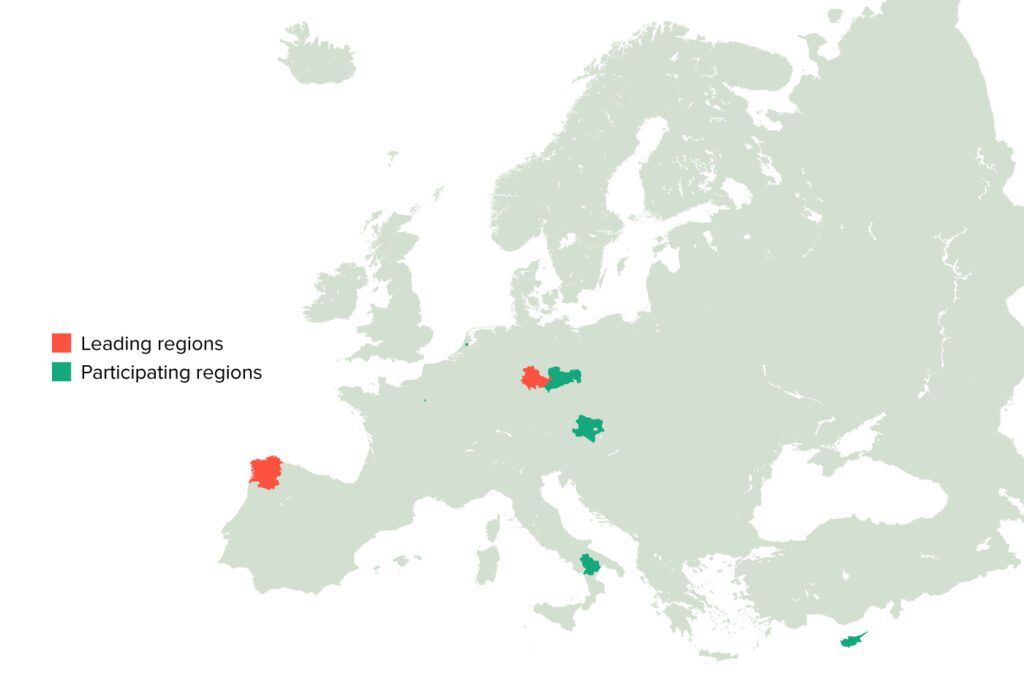The partnership seeks to explore and develop cutting-edge innovations in digital technologies for cultural heritage and cultural tourism, offering significant benefits to a wide array of stakeholders. In recent years, digitisation has become a central focus for the EU and its member states, especially in the realms of cultural heritage and tourism. This shift has led to increasingly innovation-driven funding policies and the rise of virtual and smart cultural tourism, a trend accelerated by the COVID-19 pandemic. Digital tools are now being extensively used not only to manage and promote tourism destinations but also to enhance travel experiences through immersive virtual environments.
These digital advancements allow visitors to engage with reconstructed ancient cities and experience distant historical eras in new, captivating ways. This immersive approach enhances the tourism experience while also fostering broader goals such as digital transformation, business growth, and the spread of innovations across the market. Moreover, these innovations contribute to sustainable heritage development, ensuring that cultural resources are preserved and shared, while promoting social well-being through enriched and accessible cultural experiences.
Mission
The mission of this initiative is to address the current landscape, which is dominated by small, highly specialised, and mostly national market players, while a broader European-scale innovation entity is noticeably absent. In January 2021, the Time Machine Organisation, in collaboration with Thuringia (DE), Lower Austria (AT), Cyprus, Paris (FR), Saxony (DE), Greater Amsterdam (NL), and Galicia (ES), formed a coalition to bridge this gap. Their goal is to harness digital innovation and media technologies to enhance cultural heritage in Europe, with a particular focus on scaling these efforts internationally. Mandated by DG REGIO, they are leading a one-year pilot project to develop innovative investment initiatives aimed at advancing digital and sustainable tourism.
The VSCT Partnership represents a collaboration among regions whose smart specialisation priorities and activities are closely linked to tourism and the creative industries. These regions seek adaptive strategies to better align innovation activities and value chains, ensuring they can effectively leverage digital advancements in the tourism and cultural heritage sectors.
Objectives
The VSCT Partnership is dedicated to implementing practical solutions that bring innovations in digital and sustainable cultural tourism and heritage to the market, while addressing the bottlenecks faced by regions in these areas. The partnership has three key objectives:
Cross-regional knowledge exchange – facilitating collaboration and sharing best practices between regions.
Case studies on technologies and applications – analysing and demonstrating the use of new technologies in cultural tourism and digital heritage.
Establishment of support structures – creating mechanisms to help companies, cultural institutions, and universities access funding, investors, and interregional markets for services and software products related to cultural tourism.
Shared smart specialisation areas
The VSCT Partnership is a collaboration among regions that share smart specialisation priorities in areas such as innovation, heritage, culture, tourism, and the digital creative industries. These regions are working together to develop responsive strategies that align innovation activities and value chains more effectively, ensuring that their efforts in these sectors are coordinated and mutually reinforcing.
While the partnership focuses on these core areas, some overlaps may occur between different sectors. This highlights the need for integrated approaches that can bridge diverse industries and foster synergies across regional innovation ecosystems.

Organisations involved
- Thuringia, Germany (lead) | Represented by Sander Muenster (Friedrich Schiller University Jena) & Herbert Vogler (Digitalagentur Thüringen)
- Galicia, Spain (co-lead) | Represented by Juan Castro (CRUSOE, Conference of Rectors of the Universities of the European South West)
- Saxony, Germany | Represented by Georg Fertig (U. Halle / Computer Genealogy Assoc. / Leipzig Time Machine) & Thomas Köhler (TU Dresden)
- Lower Austria | Represented by Thomas Aigner (Time Machine Organisation & ICARUS)
- Cyprus | Represented by Marinos Ioannides (Cyprus University of Technology – CUT)
- Paris, France | Represented by Valerie Gouet-Brunet (National Institute of Geographic and Forest Information – IGN)
- Greater Amsterdam, Netherlands | Represented by Julia Noordegraaf (University of Amsterdam)
- Basilicata, Italy | Represented by Rafaele Vitulli (Materahub)
Related projects
- Pilot action on COVID-19 response and recovery interregional partnerships (https://www.timemachine.eu/project-participations/interregional-partnership-virtual-and-smart-cultural-tourism/);
- C4Education, Creative Europe Innovation Lab (https://heritageinnovation.eu/c4education/; https://www.timemachine.eu/c4education/)
- Jena 4D, BKM (https://www.timemachine.eu/ltm-projects/jena4d/);
- Innovative University, BMBF;
- DigiCHER, Horizon Europe CL2; from 2/2024;
- Nucleus Jena, BMBF Innovative Hochschule; since 1/2023, https://www.nucleus-jena.de

